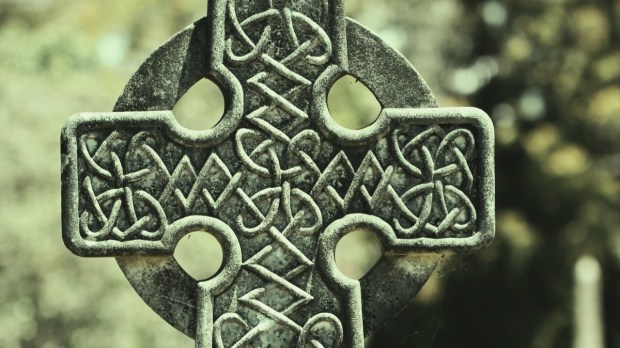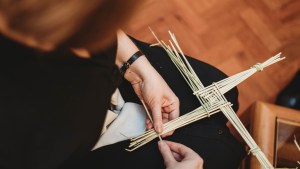Lenten Campaign 2025
This content is free of charge, as are all our articles.
Support us with a donation that is tax-deductible and enable us to continue to reach millions of readers.
Ireland is a country steeped in history, full of traditions from both the Church and its pagan past. And one thing is for sure, the Irish know how to give their deceased a great sendoff, thanks to a wake.
The reason behind the Irish wake is not exactly clear. Some historians believe it might echo the early Jewish custom of leaving the burial chamber unsealed for three days so that relatives could come and make sure their loved ones had truly passed away.
Today the Irish wake has become more of an occasion to celebrate, grieve, and honor loved ones as a family and community. Based on my personal experience, I have seen that these traditions can be adopted and modified by anyone who wishes to bid a fond and prayful farewell to a deceased family member or friend.
Preparing a modern-day wake
Fortunately, the unsavory pranks that supposedly took place during wakes in the past (like strongman competitions that involved lifting the corpse) no longer have a place in the traditional wake, thanks in no small part to Church disapproval.
Today, wholesome rituals prevail, even though it has become less common for the deceased to actually lie in repose in the family home.
These days, though friends and loved ones generally go to a funeral parlor to pay their respects, manyold customs have been adapted to help grieving families honor their dead in the best, and most respectful way possible:
Community gathering
The Irish possess a strong sense of community, especially in small towns and villages. The wake is the perfect opportunity to see this in action.
Though in general the deceased is no longer present in the family home, neighbors will still bring copious amounts of sandwiches and other nibbles for those visiting the bereaved. And you will also find plenty of people on hand ready to make a cup of tea.
Raise a glass
This may the best-known tradition. People would drop by with a drink to pay their condolences and raise a glass in honor of the departed. Nowadays this idea of having a drink is still popular, and some might go to a local pub to toast and celebrate the life of their friend or loved one.
Attending the body at all times
During a traditional Irish wake, the body would never be left unattended. Male friends of the family or more distant relatives would fill the night slots so that close family could rest before the funeral and burial. This practice still continues in homes where the body of the deceased is present.
Saying the Rosary
It has long been an Irish tradition for the Rosary to be said at midnight, and then again as morning approaches. This is a tradition that any loved ones can practice right up until the burial — and of course, praying the Rosary at any time is always a good idea. This of course is a reminder that the most important thing we can do for our deceased loved ones is to pray for them.
Sharing meaningful moments
A wake is an opportunity to not only grieve the dead, but to celebrate life. One of the best ways to do this is to share stories of our loved ones and talk about how they affected our lives.
With the Irish being renowned for great storytelling, there may be a few “embellishments” along the way. But one thing is clear, as my Irish dad would say, “Ack, they may be dead, but they’re not forgotten.”




